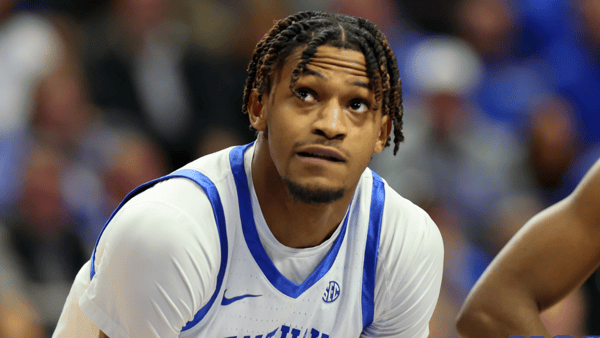Kentucky finds breakthrough following 'sweeping review' of SEC officiating

Mark Pope, like all of us, has seen the change from the non-conference schedule to SEC play in terms of how games are being officiated. Before the turn to 2025, Kentucky averaged 16.1 fouls per contest compared to 17.1 for opponents. Through five conference matchups, though, those averages are up to 22.0 and 20.0.
“We’ve been actually really good until league play. And league play has gotten complicated for us,” Pope said following his team’s loss to No. 4 Alabama, a matchup that saw the Crimson Tide shoot 34 free throws — 24 after halftime. The Wildcats took just 20 in all of regulation.
Pope said to start the year he’s gone to referee symposiums in hopes of developing a better understanding of how officials call games — “the calls are really hard,” he said of what he’s learned from attending.
Then he talked about wanting to “learn the whistle” after getting a “massive education on the whistle” in the loss at Georgia. Pope said he was “interested in the rules that are being called” and “not interested in what the rules are,” essentially saying his team couldn’t change how referees officiated games, but instead, wanted to adapt to the officiating.
That remains a work in progress now five games into the SEC schedule with foul trouble continuing to be a thorn in Kentucky’s side. It’s also a top priority internally.
“We’re spending an insane amount of time right now on fouls, so we’ve gone back and kind of categorized every foul that has been called on us over the last five games,” Pope said during his call-in show Monday evening. “We’re seeing some trends where we can really, really aggressively attack and make some strides, and that’s really important for us to do.”
He wasn’t willing to share the data — no point in giving Vanderbilt an advantage ahead of their matchup in Nashville this weekend — but he says they’ve learned some things about foul calls and how games are being officiated that could help the Wildcats get back on track in that department.
“We did a sweeping review, kind of a video and analytics on the fouls, we found some trends that are really important. I’m not actually going to talk about those publicly — because I’m sure that Vanderbilt is watching right now — but it’s given us some real direction,” Pope said. “I think there’s a good chance that we have a chance to make some massive improvements.”
Top 10
- 1New
Fran Brown airs it out
'I’m not giving no WR $2 million'
- 2
Oregon suing
Ohio State RB coach
- 3Hot
UCLA QB gauging options
After Nico Iamaleava news
- 4
Paul Finebaum
Calls out Iamaleava family
- 5Trending
Urban Meyer
'Tennessee is screwed'
Get the On3 Top 10 to your inbox every morning
By clicking "Subscribe to Newsletter", I agree to On3's Privacy Notice, Terms, and use of my personal information described therein.
The film revealed some real consistency in the calls, even if they didn’t align with what we’re used to seeing. That’s all that matters because, again, it’s not about your interpretation of the rulebook, it’s the officials’ interpretation — because they’re gonna call it their way one way or another.
They hope that mini breakthrough on film leads to a major breakthrough on the court. Because, again, like all of us, they’re tired of watching opponents rack up freebies at the line every night.
“You talk about learning this league and learning the whistle, that’s a genuine thing. There are times when I just internally (and sometimes externally) lose my mind with some of the officiating,” Pope said. “But the truth is that usually when you go back and watch the film, the officiating might not be what you’re used to or how you would correlate things with the book, but there is some consistency. The consistency may be surprising to us, but it’s teaching us a lot and we’re growing a lot.
“We’ve got to grow really quickly in that area, but if you think about our five conference wins, the two games that we’ve struggled in are the two games where we’ve gotten really, really abused and we’ve failed to perform in the free throw disparity category. That’s a place where we can really grow. I love finding places where we can grow — I actually love growing. I love our team growing.”
He drove that point home when a fan asked just how much his team worked on free throws and whether it was a staff-driven initiative in practice or player-driven individually. His answer? They’re certainly working on it, but the bigger emphasis is on keeping opponents away from the line.
“It’s such a huge part of the game, and we’re spending a lot of time on shooting free throws,” he said. “We’re trying to spend more time on not giving the other team opportunities to shoot free throws. Right now, that’s going to be a heavy focus.”









Discuss This Article
Comments have moved.
Join the conversation and talk about this article and all things Kentucky Sports in the new KSR Message Board.
KSBoard